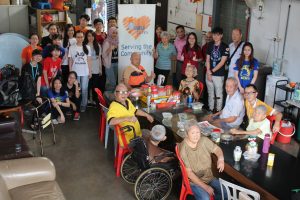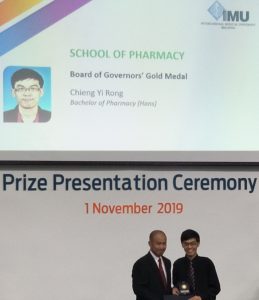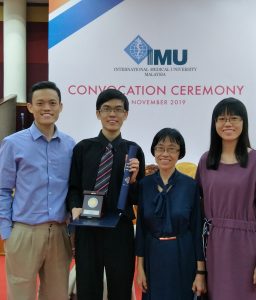[fusion_builder_container hundred_percent=”no” equal_height_columns=”no” menu_anchor=”” hide_on_mobile=”small-visibility,medium-visibility,large-visibility” class=”” id=”” background_color=”” background_image=”” background_position=”center center” background_repeat=”no-repeat” fade=”no” background_parallax=”none” parallax_speed=”0.3″ video_mp4=”” video_webm=”” video_ogv=”” video_url=”” video_aspect_ratio=”16:9″ video_loop=”yes” video_mute=”yes” overlay_color=”” overlay_opacity=”0.5″ video_preview_image=”” border_size=”” border_color=”” border_style=”solid” padding_top=”” padding_bottom=”” padding_left=”” padding_right=””][fusion_builder_row][fusion_builder_column type=”1_1″ layout=”1_1″ background_position=”left top” background_color=”” border_size=”” border_color=”” border_style=”solid” border_position=”all” spacing=”yes” background_image=”” background_repeat=”no-repeat” padding=”” margin_top=”0px” margin_bottom=”0px” class=”” id=”” animation_type=”” animation_speed=”0.3″ animation_direction=”left” hide_on_mobile=”small-visibility,medium-visibility,large-visibility” center_content=”no” last=”no” min_height=”” hover_type=”none” link=””][fusion_text] Choosing a degree course can be a dilemma after high school. Choosing the right one from a wide array of degree courses might simply give you a headache! That was what I experienced when I finished STPM several years ago. Hoping that someone could just show me a roadmap to the right track, I asked for opinions from my parents, family members, relatives, friends, teachers…you name it. Initially, I only dreamt of securing a permanent job and being capable of earning a living in future full stop. However, as I deeply thought about it, I began asking myself, “What is the social role that I can really fit in? Which area could l I be able to appropriately channel my efforts?” These had led to my next step – surveying a few courses relevant to me. I guess I had great interest in Chemistry and Mathematics. It would be really amazing to translate my knowledge of science and maths in the field of pharmaceutical care! Even more rewarding than this were the relationships established with patients as I would help them with best available medicines. 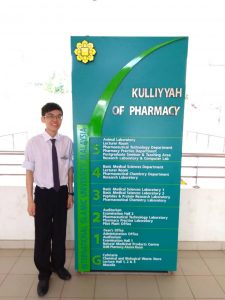 By taking into consideration my interest and academic qualifications, eventually I opted for a pharmacy degree course. Like many parents who wanted their children to be doctors, I was prompted to give my choice a second thought when I told them my decision. Anyway, I stood firm to my decision and believed that versatility of the pharmaceutical field could enable me to further explore the area which interested me most. The next thing about pursuing my studies revolved around the choice of university. As a typical STPM student, I had applied for enrolment in a number of public universities. I remembered that IMU was the only private university which I had submitted my application. Just few days after I submitted my application, I received the offer letter from IMU. Guess what, I was later absent from all interviews called by public universities. It may sound silly to you but seriously, I had never thought that I would be enrolled in IMU Bachelor of Pharmacy (BPharm) programme! The reason I chose to pursue BPharm at IMU was that IMU is the first and most established private university dealing with medical and health sciences in Malaysia. Besides that, I was truly amazed by many inspirational stories of IMU graduates who were able to stand out from the crowd to serve in different career fields. This proved that IMU could produce quality professionals upon graduation, which was one of my selection criteria of a university. Apart from that, research was incorporated into the BPharm curriculum and highly experienced lecturers would offer their support and guidance throughout the research. That was why I ultimately decided to study at IMU. Alongside successful admission to IMU, thank God that I was granted a full JPA scholarship to pursue my education. My IMU Journey A new chapter unfolded for me as I stepped into IMU. I could not imagine how I endured the feeling of loneliness at first while having a bunch of my pre-U friends studying at public universities. Fortunately, I got to know many new friends and gradually adapted myself to the environment. Right at the beginning of the programme, I was greeted with piles of assignments, including written essays, laboratory reports, etc.
By taking into consideration my interest and academic qualifications, eventually I opted for a pharmacy degree course. Like many parents who wanted their children to be doctors, I was prompted to give my choice a second thought when I told them my decision. Anyway, I stood firm to my decision and believed that versatility of the pharmaceutical field could enable me to further explore the area which interested me most. The next thing about pursuing my studies revolved around the choice of university. As a typical STPM student, I had applied for enrolment in a number of public universities. I remembered that IMU was the only private university which I had submitted my application. Just few days after I submitted my application, I received the offer letter from IMU. Guess what, I was later absent from all interviews called by public universities. It may sound silly to you but seriously, I had never thought that I would be enrolled in IMU Bachelor of Pharmacy (BPharm) programme! The reason I chose to pursue BPharm at IMU was that IMU is the first and most established private university dealing with medical and health sciences in Malaysia. Besides that, I was truly amazed by many inspirational stories of IMU graduates who were able to stand out from the crowd to serve in different career fields. This proved that IMU could produce quality professionals upon graduation, which was one of my selection criteria of a university. Apart from that, research was incorporated into the BPharm curriculum and highly experienced lecturers would offer their support and guidance throughout the research. That was why I ultimately decided to study at IMU. Alongside successful admission to IMU, thank God that I was granted a full JPA scholarship to pursue my education. My IMU Journey A new chapter unfolded for me as I stepped into IMU. I could not imagine how I endured the feeling of loneliness at first while having a bunch of my pre-U friends studying at public universities. Fortunately, I got to know many new friends and gradually adapted myself to the environment. Right at the beginning of the programme, I was greeted with piles of assignments, including written essays, laboratory reports, etc. 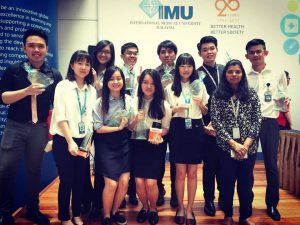 An inexperienced learner like me would feel unsure of how to start off with all the coursework, especially citations! I clearly remembered how I type each bibliography and did not know that software did exist for this purpose. I used to be spoon-fed by teachers, which resulted in me becoming too dependent on what was being taught in school only. As I progress to higher semesters, I realised that I should take my own initiative to consult lecturers, seniors and friends when I faced difficulties. Furthermore, the programme itself was mentally demanding, so absorbing new and voluminous amounts of information within a short period of time was no easy task. I discovered that it was not very much about “what to study”, instead “how to study” should come into the picture.
An inexperienced learner like me would feel unsure of how to start off with all the coursework, especially citations! I clearly remembered how I type each bibliography and did not know that software did exist for this purpose. I used to be spoon-fed by teachers, which resulted in me becoming too dependent on what was being taught in school only. As I progress to higher semesters, I realised that I should take my own initiative to consult lecturers, seniors and friends when I faced difficulties. Furthermore, the programme itself was mentally demanding, so absorbing new and voluminous amounts of information within a short period of time was no easy task. I discovered that it was not very much about “what to study”, instead “how to study” should come into the picture.
During my third year of studies, the Clinical Pharmacy I module had exposed students to community projects which were funded by IMU Cares. I think that IMU had emphasised and instilled the quality of humanity in me through these community projects besides knowledge-based activities.
I had the chance to lead a health education project in Rumah Charis – Home for the Aged. From the stage of proposal till implementation, there were tough times where I had to crack my head to solve a problem. Fortunately, my supervisor and groupmates were very supportive and cooperative. With their help, outcomes of the project were achieved, including education of personal hygiene, acknowledgement of the importance of exercise among the elderly as well as nurturing care and love of younger generations towards the elderly. More valuably, patience was what I learnt during the visit, especially when I tried to explain the questionnaire to the elderly.
I remembered that I arrived at the Home with an activity-oriented mindset but came back with a feeling of melancholy. Communication barriers and generation gaps often co-exist, but I took one step forward to overcome them when I attempted to talk to them, listened to their stories of looking back at their lives, and most importantly understood how they felt and therefore put myself in their shoes. It also helped me develop empathy and acquire values which could never be learnt from textbooks alone. I also became a helper in some of the IMU activities, e.g. fundraising activities. I was not an active member of any club, but I preferred to add a little value to activities that required student helpers. I guess this could
partly be due to the fear of putting too much burden on my studies. Anyway, the activities did help sharpen my communication and interpersonal skills. 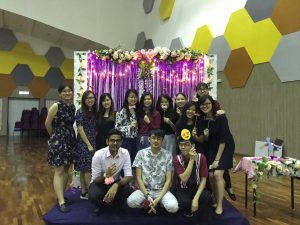 However, looking back, I think that I missed the golden hour of my life in the university. If I were to be given a second chance, I would pick up more extra-curricular activities to further polish up my soft skills while juggling my studies as I feel that soft skills are as important as aptitude and employers are looking for both elements in one character nowadays.
However, looking back, I think that I missed the golden hour of my life in the university. If I were to be given a second chance, I would pick up more extra-curricular activities to further polish up my soft skills while juggling my studies as I feel that soft skills are as important as aptitude and employers are looking for both elements in one character nowadays.
During my final year of studies, I was lucky to be chosen as one of the participants of IMU teams to join National Pharmacy Quiz Challenge & Piala Aisyah (NPQC-PA) 2019. This annual contest involved pharmacy students from different universities across Malaysia. The pharmacy quiz basically tested on a variety of scopes ranging from biology, chemistry, physiology, pharmacology, pharmaceutics to immunology while Piala Aisyah tested on extemporaneous dispensing. IMU had its pharmacy students emerged as champion the previous year, so a lot of pressure and expectations were put on us.
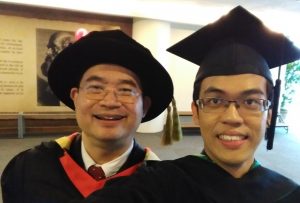 Sadly, our teams got eliminated in the first round though we had tried our best and were tested to the limit. It was indeed a bitter pill to swallow but I learnt that knowledge has no boundaries and one should never ever stop learning. One thing I liked the most about IMU was the strong support provided by the university. I had a great mentor who pushed me forward. I had lecturers who were willing to guide me when I was in doubt. I had counsellors whom I could turn to for moral support. I had school administrators who were responsive in answering queries pertaining to facilities and services. I just felt that how fortunate I was to have studied in IMU. [/fusion_text][fusion_imageframe image_id=”38201″ style_type=”none” stylecolor=”” hover_type=”none” bordersize=”15″ bordercolor=”#ffffff” borderradius=”” align=”none” lightbox=”no” gallery_id=”” lightbox_image=”” alt=”” link=”” linktarget=”_self” hide_on_mobile=”small-visibility,medium-visibility,large-visibility” class=”” id=”” animation_type=”” animation_direction=”left” animation_speed=”0.3″ animation_offset=””]https://www.imu.edu.my/media/2019/11/Friendsa-1.jpg[/fusion_imageframe][fusion_table]
Sadly, our teams got eliminated in the first round though we had tried our best and were tested to the limit. It was indeed a bitter pill to swallow but I learnt that knowledge has no boundaries and one should never ever stop learning. One thing I liked the most about IMU was the strong support provided by the university. I had a great mentor who pushed me forward. I had lecturers who were willing to guide me when I was in doubt. I had counsellors whom I could turn to for moral support. I had school administrators who were responsive in answering queries pertaining to facilities and services. I just felt that how fortunate I was to have studied in IMU. [/fusion_text][fusion_imageframe image_id=”38201″ style_type=”none” stylecolor=”” hover_type=”none” bordersize=”15″ bordercolor=”#ffffff” borderradius=”” align=”none” lightbox=”no” gallery_id=”” lightbox_image=”” alt=”” link=”” linktarget=”_self” hide_on_mobile=”small-visibility,medium-visibility,large-visibility” class=”” id=”” animation_type=”” animation_direction=”left” animation_speed=”0.3″ animation_offset=””]https://www.imu.edu.my/media/2019/11/Friendsa-1.jpg[/fusion_imageframe][fusion_table]
[/fusion_table][fusion_text] 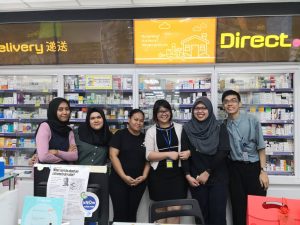
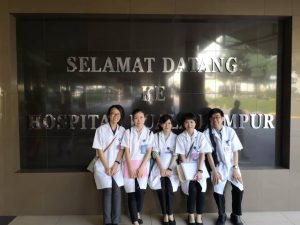
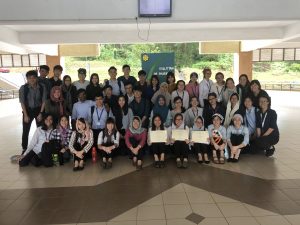 [/fusion_text][fusion_table]
[/fusion_text][fusion_table]
| My time at IMU had taught me three important lessons: |
|---|
| First: Be a proactive learner; |
| Second: Be willing to share knowledge and experience; |
| Third: Be kind and compassionate to others. |
[/fusion_table][fusion_text] 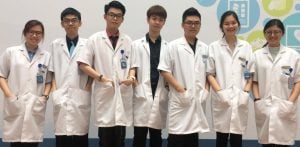 I personally think that the IMU pharmacy degree had prepared me for the future, especially in clinical pharmacy. I particularly wanted to explore more in this area as this is the bread and butter of a hospital pharmacist. The Pharmacy Skill Development (PSD) sessions and Objective Structured Clinical Examination (OSCE) had prepared me for real life scenarios that may mainly be encountered in a hospital setting. Let me tell you a secret – Somehow it had become a tradition of taking photos among IMU pharmacy students in white coats when we finished all our PSD sessions at the end of each semester. A sigh of relief? Nope, it was one of those memorable moments that we would like to cherish in future. [/fusion_text][fusion_text] What’s Next? Finally, my four years of studies in IMU can be described as “keep up with time or time will keep you off”. Plan ahead and do not wait until the eleventh hour! One might have heard this a thousand times but practising it was a totally different story. There were times when my schedule did not go on as planned; Being strong willed to attend lectures but ended up burying myself in the cosy bed; Preparing earlier for assessments and presentations but went blank in real time; etc. What I am trying to say is that what you sow might not be 100% intertwined with what you reap at the end of the day, but at least you have given the best shot. The key was to constantly reflect on your performance, make necessary adjustments and keep going – telling yourself that you will be a better version of yourself compared to yesterday. I believe that hard work does matter after all. I am currently still waiting for p
I personally think that the IMU pharmacy degree had prepared me for the future, especially in clinical pharmacy. I particularly wanted to explore more in this area as this is the bread and butter of a hospital pharmacist. The Pharmacy Skill Development (PSD) sessions and Objective Structured Clinical Examination (OSCE) had prepared me for real life scenarios that may mainly be encountered in a hospital setting. Let me tell you a secret – Somehow it had become a tradition of taking photos among IMU pharmacy students in white coats when we finished all our PSD sessions at the end of each semester. A sigh of relief? Nope, it was one of those memorable moments that we would like to cherish in future. [/fusion_text][fusion_text] What’s Next? Finally, my four years of studies in IMU can be described as “keep up with time or time will keep you off”. Plan ahead and do not wait until the eleventh hour! One might have heard this a thousand times but practising it was a totally different story. There were times when my schedule did not go on as planned; Being strong willed to attend lectures but ended up burying myself in the cosy bed; Preparing earlier for assessments and presentations but went blank in real time; etc. What I am trying to say is that what you sow might not be 100% intertwined with what you reap at the end of the day, but at least you have given the best shot. The key was to constantly reflect on your performance, make necessary adjustments and keep going – telling yourself that you will be a better version of yourself compared to yesterday. I believe that hard work does matter after all. I am currently still waiting for p
lacement in the government sector as I have decided to become a hospital pharmacist. [/fusion_text][fusion_table]
| My Advice for Anyone who are Interested in Studying Pharmacy |
|---|
| Go for it, be active! I once used to think that pharmacists were the ones standing behind the counter dispensing medicine, and that’s it. As I went through the curriculum, including attachments to a community pharmacy, a pharmaceutical industry and a government hospital, I realised that a pharmacist has diverse roles and could do much more than that! Opportunities are right there – grab them or lose them. |
[/fusion_table][fusion_imageframe image_id=”38046″ style_type=”none” stylecolor=”” hover_type=”none” bordersize=”16″ bordercolor=”#ffffff” borderradius=”” align=”none” lightbox=”no” gallery_id=”” lightbox_image=”” alt=”” link=”” linktarget=”_self” hide_on_mobile=”small-visibility,medium-visibility,large-visibility” class=”” id=”” animation_type=”” animation_direction=”left” animation_speed=”0.3″ animation_offset=””]https://www.imu.edu.my/media/2019/11/1.-Completion-of-studies.jpg[/fusion_imageframe][fusion_text]
Written by Chieng Yi Rong
Related article: IMU Confers its Maiden Cohort of Postgraduates for Business Administration in Healthcare Management
[/fusion_text][/fusion_builder_column][/fusion_builder_row][/fusion_builder_container]


